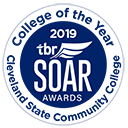Median wages
$37,190
Provide social services to assist in rehabilitation of law offenders in custody or on probation or parole. Make recommendations for actions involving formulation of rehabilitation plan and treatment of offender, including conditional release and education and employment stipulations.
- Interview probationers and parolees regularly to evaluate their progress in accomplishing goals and maintaining the terms specified in their probation contracts and rehabilitation plans.

- Recommend remedial action or initiate court action in response to noncompliance with terms of probation or parole.

- Administer drug and alcohol tests, including random drug screens of offenders, to verify compliance with substance abuse treatment programs.

- Prepare and maintain case folder for each assigned inmate or offender.

- Discuss with offenders how such issues as drug and alcohol abuse and anger management problems might have played roles in their criminal behavior.

- Conduct prehearing and presentencing investigations and testify in court regarding offenders' backgrounds and recommended sentences and sentencing conditions.

- Inform offenders or inmates of requirements of conditional release, such as office visits, restitution payments, or educational and employment stipulations.

- Write reports describing offenders' progress.

- Arrange for medical, mental health, or substance abuse treatment services according to individual needs or court orders.

- Supervise people on community-based sentences, such as electronically monitored home detention, and provide field supervision of probationers by conducting curfew checks or visits to home, work, or school.

- Develop liaisons and networks with other parole officers, community agencies, correctional institutions, psychiatric facilities, and aftercare agencies to plan for helping offenders with life adjustments.

- Arrange for postrelease services, such as employment, housing, counseling, education, and social activities.

- Gather information about offenders' backgrounds by talking to offenders, their families and friends, and other people who have relevant information.

- Develop rehabilitation programs for assigned offenders or inmates, establishing rules of conduct, goals, and objectives.

- Develop and prepare packets containing information about social service agencies, assistance organizations, and programs that might be useful for inmates or offenders.

- Provide offenders or inmates with assistance in matters concerning detainers, sentences in other jurisdictions, writs, and applications for social assistance.

- Investigate alleged parole violations, using interviews, surveillance, and search and seizure.

- Recommend appropriate penitentiary for initial placement of an offender.

- Assess the suitability of penitentiary inmates for release under parole and statutory release programs and submit recommendations to parole boards.

- Participate in decisions about whether cases should go before courts and which court should hear them.

- Identify and approve work placements for offenders with community service sentences.
- Calendar and scheduling software — Appointment scheduling software

- Data base user interface and query software — Court records databases; Microsoft Access


- Electronic mail software — Email software; Microsoft Outlook


- Internet browser software — Web browser software

- Map creation software — Electronic tracking device software

- Office suite software — Corel WordPerfect Office Suite; Microsoft Office

- Presentation software — Microsoft PowerPoint


- Project management software — Case management software; Tyler Technologies Odyssey Case Manager

- Spreadsheet software — Microsoft Excel


- Voice recognition software — Speech recognition software

- Word processing software — Microsoft Word

![]() Hot Technology — a technology requirement frequently included in employer job postings.
Hot Technology — a technology requirement frequently included in employer job postings.
- Critical Thinking — Using logic and reasoning to identify the strengths and weaknesses of alternative solutions, conclusions or approaches to problems.

- Social Perceptiveness — Being aware of others' reactions and understanding why they react as they do.

- Speaking — Talking to others to convey information effectively.

- Active Listening — Giving full attention to what other people are saying, taking time to understand the points being made, asking questions as appropriate, and not interrupting at inappropriate times.

- Monitoring — Monitoring/Assessing performance of yourself, other individuals, or organizations to make improvements or take corrective action.

- Writing — Communicating effectively in writing as appropriate for the needs of the audience.

- Reading Comprehension — Understanding written sentences and paragraphs in work related documents.

- Complex Problem Solving — Identifying complex problems and reviewing related information to develop and evaluate options and implement solutions.

- Judgment and Decision Making — Considering the relative costs and benefits of potential actions to choose the most appropriate one.

- Coordination — Adjusting actions in relation to others' actions.

- Persuasion — Persuading others to change their minds or behavior.

- Active Learning — Understanding the implications of new information for both current and future problem-solving and decision-making.

- Service Orientation — Actively looking for ways to help people.

- Negotiation — Bringing others together and trying to reconcile differences.

- Instructing — Teaching others how to do something.

- Time Management — Managing one's own time and the time of others.










